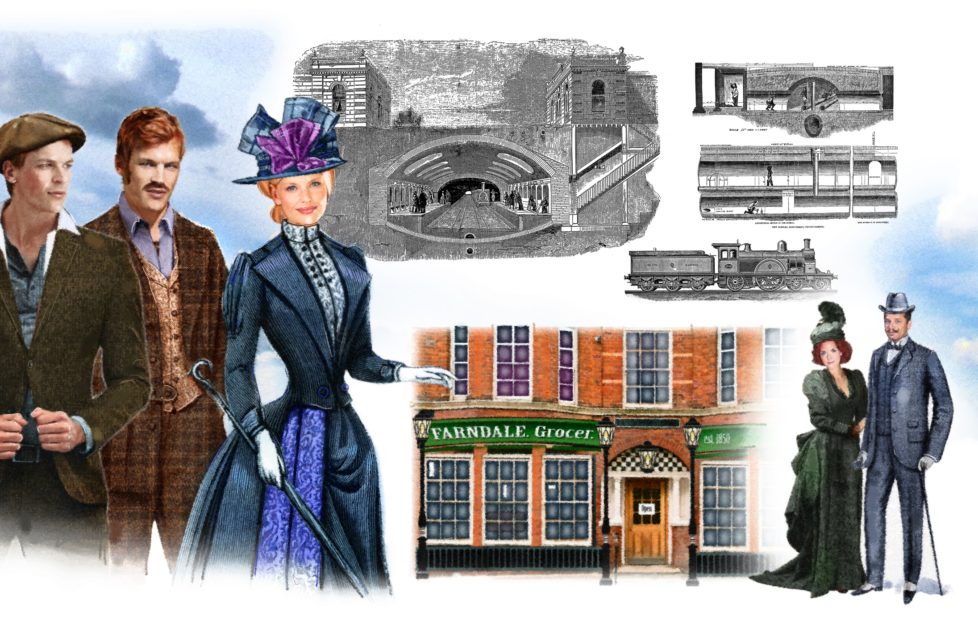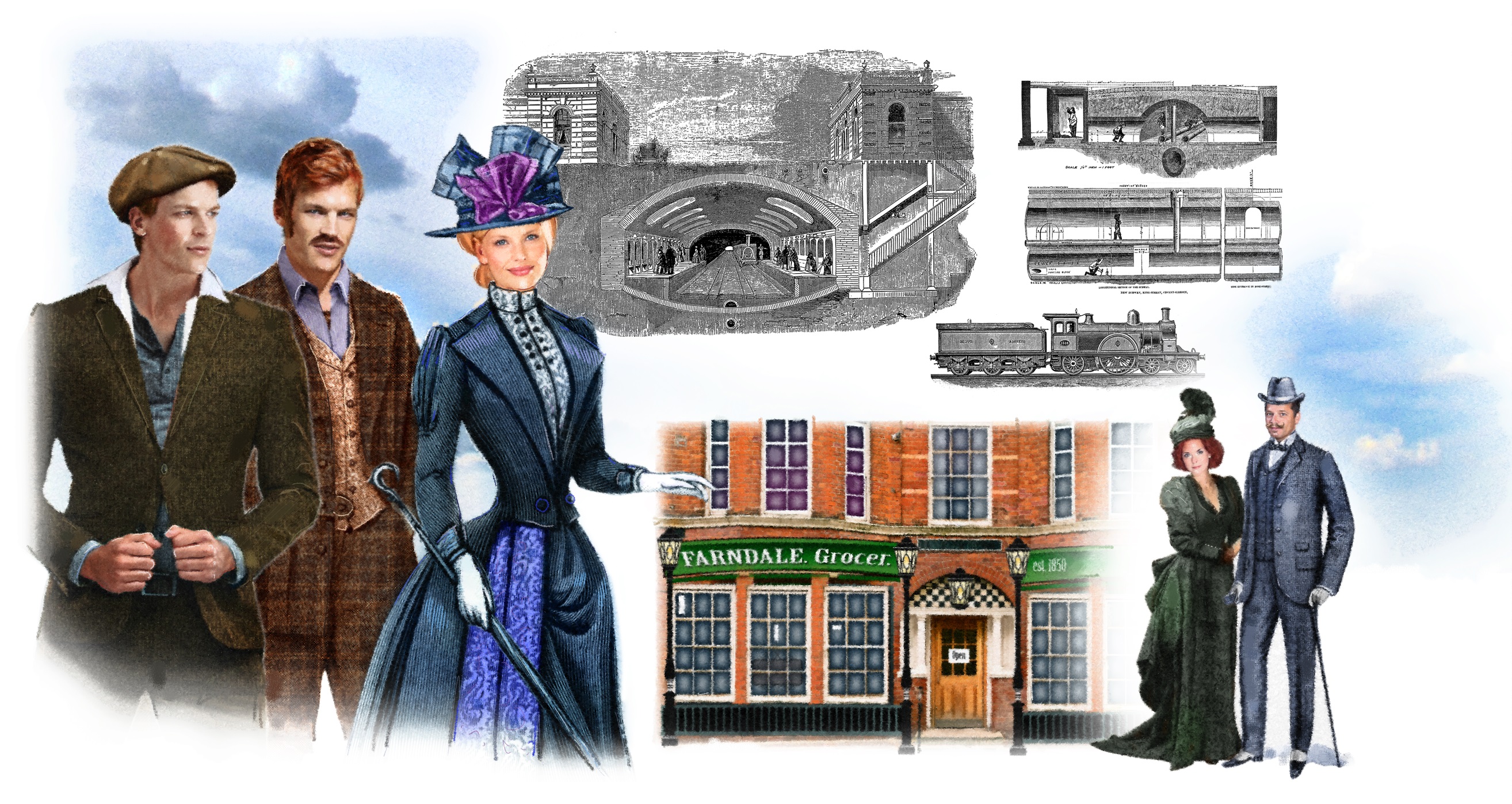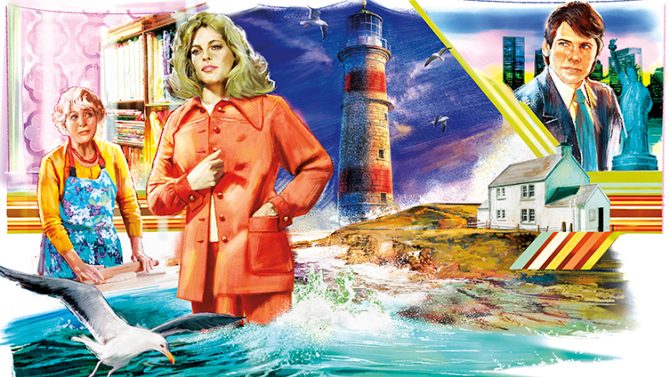Under The Streets Of London – Episode 04

Under The Streets Of London
« Previous Post- 2. Under The Streets Of London – Episode 01
- 3. Under The Streets Of London – Episode 02
- 4. Under The Streets Of London – Episode 03
- 5. Under The Streets Of London – Episode 04
- 6. Under The Streets Of London – Episode 05
- 7. Under The Streets Of London – Episode 06
- 8. Under The Streets Of London – Episode 07
Henry, however, didn’t seem to notice.
“Well, gentlemen.” He stepped close to her. “What do you make of our tunnel? Ingenious, is it not?”
“It’s very big,” one offered, looking down into the maw of the works.
“And dirty,” a second said, looking ruefully down at his muddy shoes.
“And open.” The third turned Eliza’s way. “Is it due for completion soon, miss?”
“Let me check that and get back to you with a date,” Eliza said promptly, “but I believe it’s making splendid progress.”
“Splendid!” Henry echoed. “Look, these are the actual tracks being laid – the ones that the world’s first-ever underground train will run on. Is that not astounding?”
Eliza relaxed as Henry charmed her charges. He was Malcolm Jones’s godson and she remembered him from picnics and parties when she was a child.
He’d been a livewire, always the one leading the other children into mischief. Playing sardines stuck particularly in her mind.
Turning twenty-one didn’t seem to have matured him greatly, but he was sweet, entertaining and attentive. Too attentive, Eliza thought, as he used the uneven ground as a pretext to take her arm. It was nice to have a friend in London, yes, but she didn’t want a suitor at the moment.
Not after . . .
She shuddered and pulled back to let the journalists past, slipping from Henry’s hold on her as she did so. Henry, however, just fell back with her.
“Is it going well?” he whispered as her three charges crowded forward to watch the navvies below fitting a timber support.
“I think so. Though there was a lady in one of the shops complaining.”
“About?”
“The disruption to her business and the danger for her children. She looked exhausted. I did feel sorry for her.”
“Ah, Lizzie. You’re too tender-hearted. She won’t be complaining once the line’s open and her shop’s earning twice what it did!”
“I’m sure you’re right, but would you like to live along here at the moment?” She waved to the mangle of material that had once been the New Road. Great piles of bricks blocked what had once been a walkway, their red dust churned to a paste with the mud from the hole.
Beyond them, racks of timbers were piled dangerously high, mere feet from the shop fronts. All along the trench pulleys stood like gallows, stark against the bright skyline.
“She told me she caught her little boy in the trench this morning.”
“She should control him, then, shouldn’t she?”
“Like your parents controlled you?”
Henry grinned.
“Sardines! We could play again, if you liked, Lizzie.”
“Eliza.”
“Sorry. Eliza.” He winked and gave her a little bow. “I like you grown up,” he said. “You’ve become very pretty.”
“Are you saying I was an ugly child, Henry?”
He tilted his head.
“You were quite funny-looking – sticky-out pigtails and lots of freckles.”
Eliza groaned; it was true.
“But you’re lovely now.”
His soft tone caught her by surprise and she smiled.
“Thank you, Henry. But we’d best catch up with our journalists before they tumble into the tunnel!”
She edged forward, peering down into the works, fascinated by the concentrated industry.
There were people everywhere but her eye was immediately caught by the two broad-shouldered navvies the journalists were watching man-handle a giant timber into place.
The end was supported by a pulley, but the men seemed to be taking the bulk of the weight. How did they hold it?
She watched nervously as they inched forward.
“Nothing bad can happen,” Henry was saying jauntily behind her. “It’s impossible. This is the Metropolitan railway. It’s a work of engineering genius.”
Eliza, however, kept her eyes on the navvies below, willing them onwards. The railway was impressive but dangerous, too, especially for those poor men. The sooner that timber was in place, the better.














